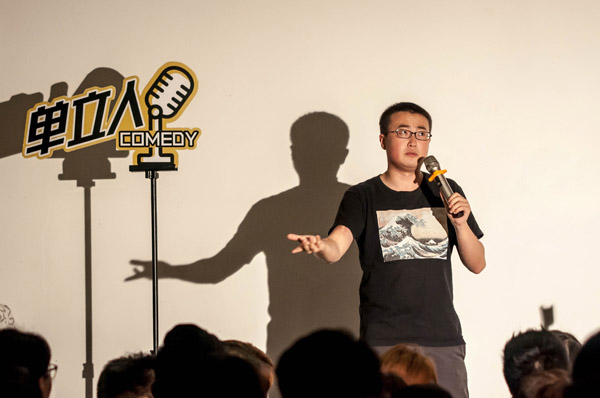Grains, leaves and the power of humor
By Cui Can and Chen Xiaojing | China Daily | Updated: 2018-02-03 10:43

With a mindset that favors the reserved thinking of the collective, some reckon that Chinese have traditionally found it difficult to laugh at themselves. Four decades after the country began opening up to the world, that seems to have changed.
Wearing black-framed glasses, a T-shirt and jeans, Shi Laoban comes across as the boy next door, the one you run into on the street who is full of curiosity about life and keen to tell you about his latest discoveries - whether you want to hear about them or not.
"My WeChat Moments are flooded with two things," he tells the audience.
"One is kids and the other is about selling foreign products. So to grab everyone's attention I'm planning on selling kids."
After Shi delivers the punchline, the audience is rolling in the aisles. He pauses and waits for the laughter to die down.
That humor may not quite be your cup of tea, but it seems to have done no harm to Shi, one of a growing number of Chinese comics riding the wave of stand-up mania in China, headlined in an hour-long show last year.
He won first prize in the China International Comedy Festival in 2016, giving him attention and fame on which he has since been able to trade. As a result he quit what most people would consider a desirable job in finance and founded Danliren, a stand-up comedy club in Beijing.
"I've done sketches, crosstalk and drama, but eventually realized that stand-up comedy was my thing," Shi says. "In sketches and drama you play other people, and crosstalk has fixed scripts and routines, whereas with stand-up comedy you can really express yourself to the hilt.
"You draw inspiration from personal observations of life and then create jokes. It's very free. Every point of view is true to you. On stage the idea is just to be yourself."
























